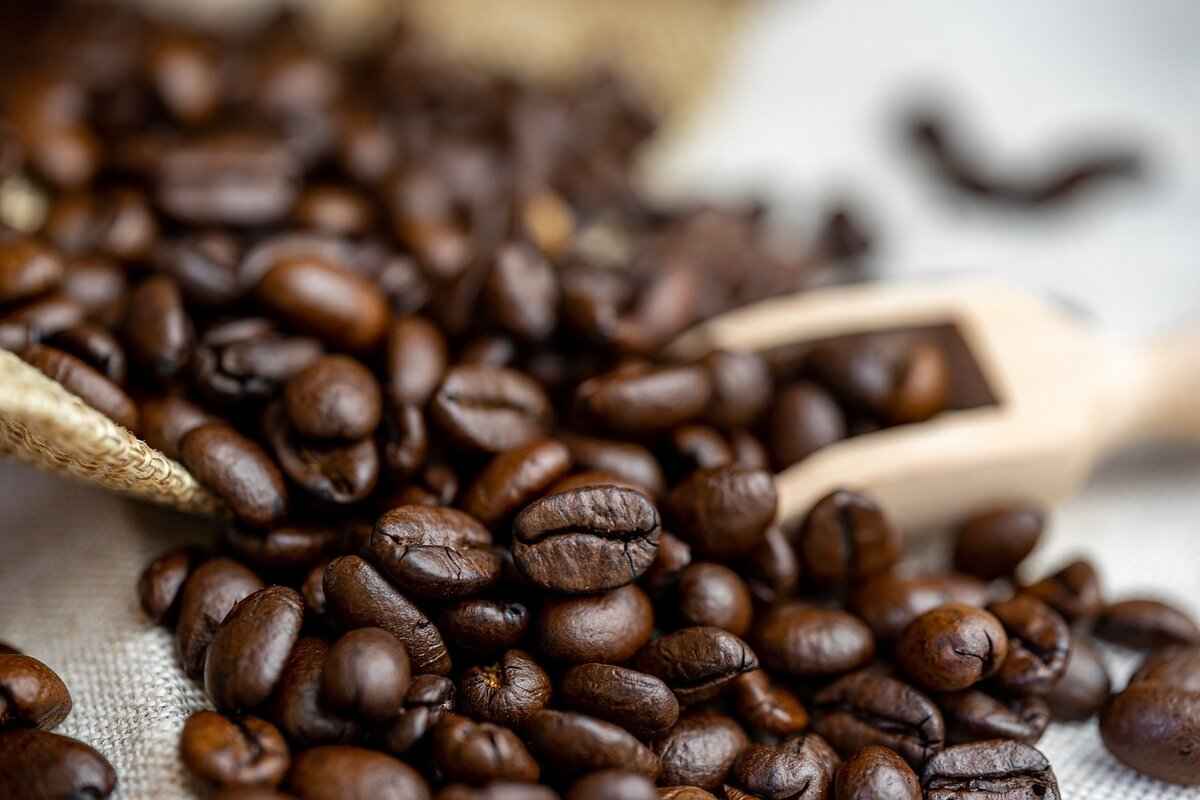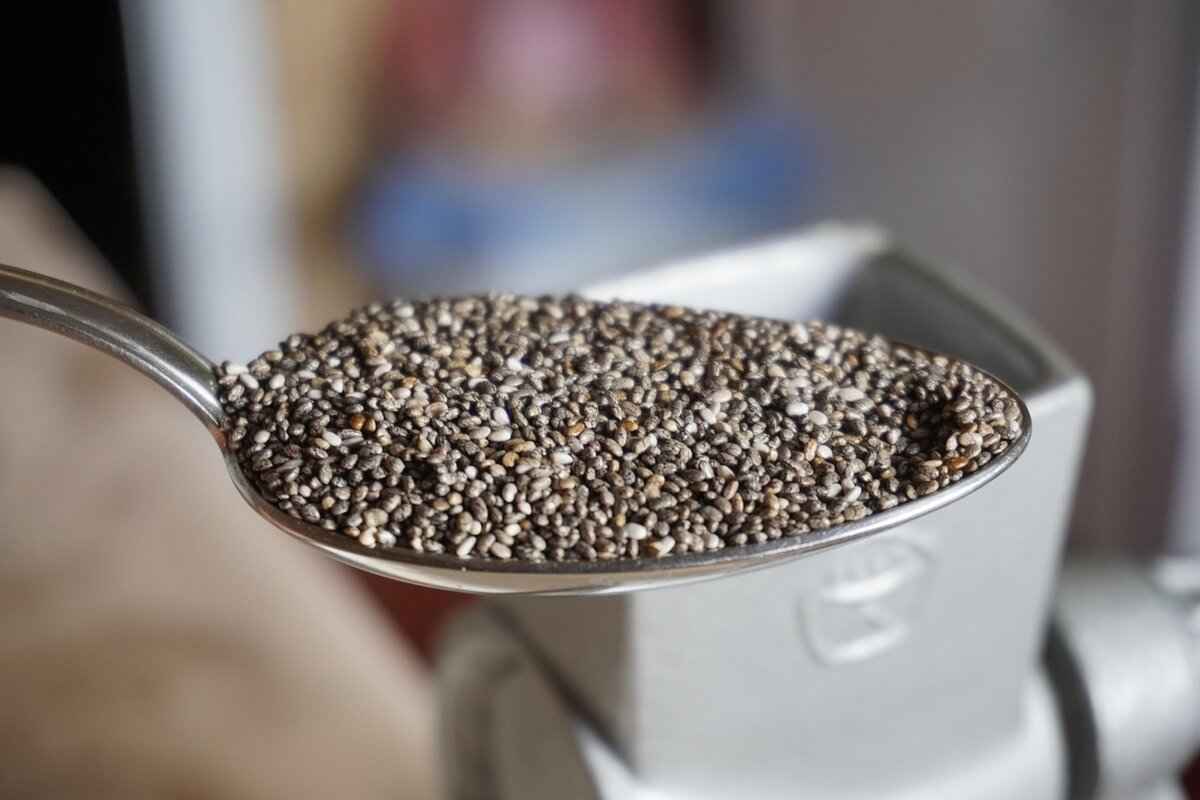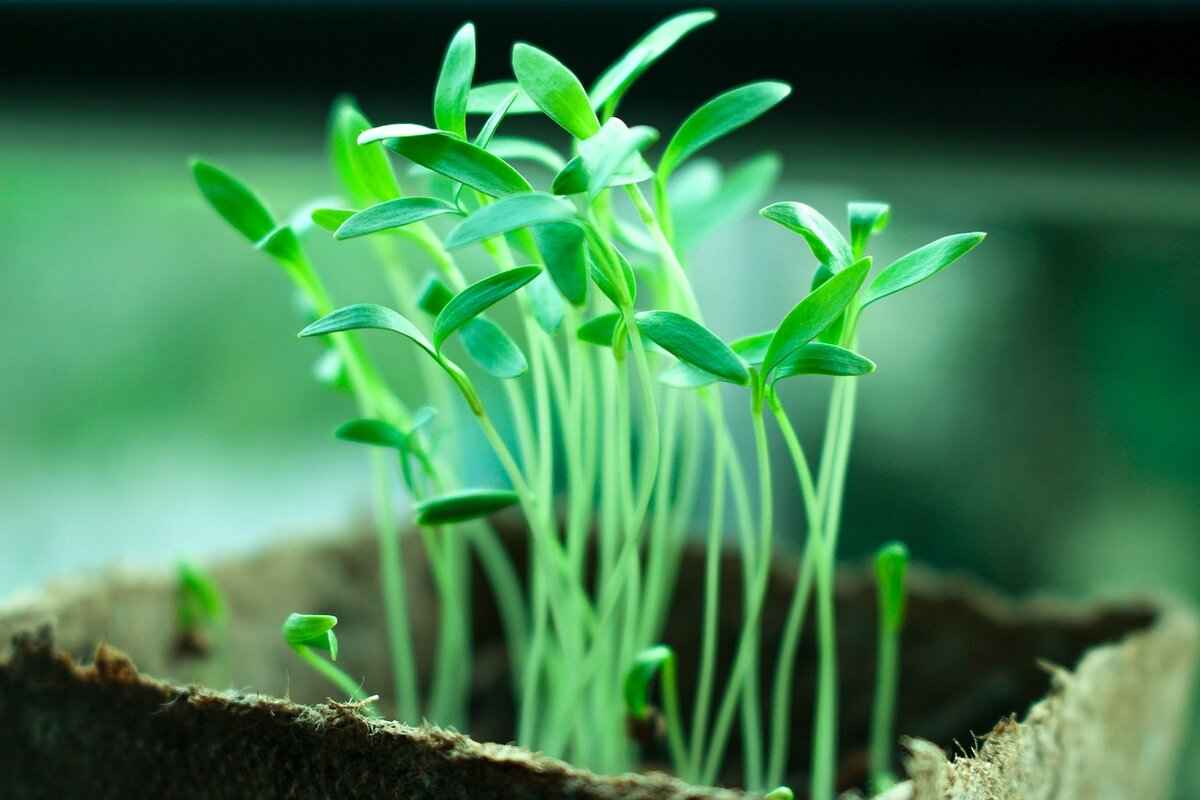This article explores the best times to consume chia seeds for weight loss, providing insights into their nutritional benefits, preparation methods, and how they can fit into a healthy diet.
What Are Chia Seeds and Their Nutritional Benefits?
Chia seeds are tiny, nutrient-dense superfoods that come from the Salvia hispanica plant. They are packed with essential nutrients, including fiber, protein, and omega-3 fatty acids. Their high fiber content aids in digestion and promotes a feeling of fullness, making them an excellent addition to a weight loss diet. Additionally, chia seeds are rich in antioxidants, which help combat oxidative stress and inflammation in the body.
How Do Chia Seeds Aid in Weight Loss?
Chia seeds can significantly promote weight loss due to their ability to absorb water and expand in the stomach, leading to increased satiety. This characteristic helps reduce overall calorie intake throughout the day. Moreover, the protein in chia seeds helps maintain muscle mass during weight loss, which is crucial for a healthy metabolism.
When Is the Best Time to Consume Chia Seeds?
The timing of chia seed consumption can impact their effectiveness for weight loss. Understanding when to incorporate them into your diet can maximize their benefits.
- Morning Consumption: Kickstart Your Metabolism
- Pre-Workout: Fueling Your Exercise
- Evening Consumption: Aiding Digestion Overnight
Eating chia seeds in the morning can help boost metabolism and provide sustained energy throughout the day. Adding them to your breakfast smoothie or oatmeal can set a healthy tone for the day.
Consuming chia seeds before a workout can enhance endurance and performance. Their nutrient profile provides the necessary fuel for an effective exercise session, making them an ideal pre-workout snack.
Incorporating chia seeds into your evening routine can support digestion and promote a feeling of fullness, which can help curb late-night snacking. Try adding them to yogurt or a smoothie before bed.
How to Prepare Chia Seeds for Optimal Benefits?
Proper preparation of chia seeds is crucial for unlocking their full potential. Here are some effective methods:
- Soaking Chia Seeds: Why It Matters
- Incorporating Chia Seeds into Meals
Soaking chia seeds in water or other liquids before consumption improves their texture and digestibility. This simple preparation method allows the seeds to absorb liquid and expand, making them easier to incorporate into your meals.
Chia seeds can be easily added to various dishes. From smoothies and salads to baked goods, there are countless creative ways to enjoy their nutritional benefits. Consider sprinkling them on top of your meals for added crunch and nutrition.
Are There Any Risks or Side Effects of Chia Seeds?
While chia seeds are generally safe for most people, it is essential to be aware of potential risks and side effects. Some individuals may experience allergies or digestive discomfort. Drinking plenty of water when consuming chia seeds can help mitigate any digestive issues.
Recommended Daily Intake for Weight Loss
Finding the right amount of chia seeds to consume daily is essential for weight loss. A typical recommended intake is about 1-2 tablespoons per day. However, individual needs may vary based on dietary goals and overall health. It’s always best to consult with a healthcare professional for personalized advice.

What Are Chia Seeds and Their Nutritional Benefits?
Chia seeds have gained immense popularity in recent years as a superfood due to their impressive nutritional profile. These tiny seeds are derived from the Salvia hispanica plant, native to Mexico and Guatemala. They are packed with essential nutrients that can support overall health and wellness, making them a valuable addition to any diet.
One of the most notable features of chia seeds is their high fiber content. Just a single ounce (about 28 grams) of chia seeds contains approximately 11 grams of fiber, which is nearly one-third of the recommended daily intake for adults. This fiber is primarily soluble, meaning it absorbs water and forms a gel-like substance in the stomach. This property helps to promote a feeling of fullness, which can be particularly beneficial for those looking to manage their weight.
In addition to fiber, chia seeds are an excellent source of protein. They contain all nine essential amino acids, making them a complete protein source. This is especially advantageous for vegetarians and vegans, as it can help meet their protein needs without relying on animal products. The protein content in chia seeds can also support muscle repair and growth, making them a great addition to post-workout meals.
Another significant aspect of chia seeds is their rich content of omega-3 fatty acids. These healthy fats are crucial for heart health, brain function, and reducing inflammation in the body. Chia seeds are one of the best plant-based sources of omega-3s, providing about 5 grams per ounce. Incorporating chia seeds into your diet can help ensure that you receive adequate amounts of these beneficial fats.
Moreover, chia seeds are loaded with essential minerals such as calcium, magnesium, and phosphorus. These minerals play a vital role in maintaining bone health, supporting energy production, and regulating various bodily functions. For instance, calcium is crucial for bone density, while magnesium is important for muscle function and energy metabolism.
Chia seeds are also low in calories, making them an ideal choice for those looking to lose weight or maintain a healthy weight. With only about 137 calories per ounce, they can easily be incorporated into meals without significantly increasing caloric intake. This makes chia seeds a versatile ingredient that can be added to smoothies, yogurt, salads, and baked goods.
In summary, understanding the nutritional benefits of chia seeds is essential for maximizing their potential, especially for those focused on weight loss. Their combination of high fiber, protein, omega-3 fatty acids, and essential minerals makes them a powerhouse of nutrition. By incorporating chia seeds into your daily diet, you can enhance your overall health and support your weight loss goals.

How Do Chia Seeds Aid in Weight Loss?
Chia seeds have gained popularity in recent years as a powerful addition to a weight loss regimen. Their unique properties make them an excellent choice for individuals looking to manage their weight effectively. In this section, we will delve into how chia seeds aid in weight loss, focusing on their ability to enhance satiety, regulate digestion, and contribute to overall health.
Chia seeds can significantly support weight loss efforts through several mechanisms:
- Enhanced Satiety: One of the most notable benefits of chia seeds is their ability to promote a feeling of fullness. When soaked in water, chia seeds can absorb up to 12 times their weight, expanding in the stomach and creating a sense of fullness. This can help reduce overall calorie intake throughout the day, making it easier to stick to a weight loss plan.
- High Fiber Content: Chia seeds are an excellent source of dietary fiber, with approximately 11 grams of fiber per ounce. This high fiber content aids in digestion by promoting regular bowel movements and preventing constipation. Additionally, fiber slows down the digestion process, leading to a gradual release of energy and more stable blood sugar levels, which can help curb cravings.
- Protein Source: Chia seeds are also rich in protein, containing about 4 grams per ounce. Protein is essential for muscle repair and growth, and it can also help you feel fuller for longer. Including protein-rich foods in your diet can aid in weight loss by reducing hunger and preventing overeating.
- Omega-3 Fatty Acids: These tiny seeds are packed with omega-3 fatty acids, which are known for their anti-inflammatory properties. Reducing inflammation in the body can support metabolic health and improve overall well-being, making it easier to lose weight.
- Low Caloric Density: Chia seeds are low in calories, making them an ideal food for those looking to lose weight. You can add them to various dishes without significantly increasing your caloric intake, allowing you to enjoy their benefits while maintaining a calorie deficit.
Incorporating chia seeds into your diet can be a simple and effective strategy for weight loss. Here are some practical tips:
- Start Your Day with Chia Seeds: Adding chia seeds to your breakfast, whether in smoothies, oatmeal, or yogurt, can help kickstart your metabolism and keep you full until lunchtime.
- Pre-Workout Boost: Consuming chia seeds before a workout can provide sustained energy, thanks to their combination of protein, fiber, and healthy fats.
- Evening Snack: Mixing chia seeds into a nighttime snack can help prevent late-night cravings by promoting satiety.
In summary, chia seeds are a versatile and nutritious addition to any weight loss plan. Their ability to enhance satiety, regulate digestion, and provide essential nutrients makes them a valuable tool for those looking to shed pounds and improve their overall health. By incorporating chia seeds into your daily routine, you can harness their benefits and support your weight loss journey effectively.

When Is the Best Time to Consume Chia Seeds?
Chia seeds have gained immense popularity as a superfood, particularly for those aiming for weight loss. However, the timing of their consumption can significantly influence their effectiveness. Understanding when to incorporate chia seeds into your diet can maximize their benefits and help you achieve your weight loss goals.
The timing of chia seed consumption is crucial for enhancing their weight loss benefits. By strategically incorporating them into your daily routine, you can leverage their nutritional properties to support your health journey.
Starting your day with chia seeds can be a game-changer. Why consume them in the morning? Their high fiber content can help you feel full longer, reducing the likelihood of mid-morning snacking. Adding chia seeds to your breakfast smoothie, yogurt, or oatmeal can provide a nutritious boost that kickstarts your metabolism and keeps you energized throughout the morning.
Consuming chia seeds before your workout can enhance your performance. How do they help? Chia seeds are rich in carbohydrates, which provide a quick source of energy. Additionally, their protein content aids in muscle recovery. Mixing chia seeds into a pre-workout smoothie or energy drink can fuel your exercise sessions, allowing you to push harder and burn more calories.
After an intense workout, your body needs nutrients to recover. How can chia seeds fit into this? They can be a perfect addition to your post-workout meal, as they help replenish lost nutrients and promote muscle recovery. Consider adding chia seeds to a protein shake or a fruit smoothie to maximize your recovery.
Incorporating chia seeds into your evening routine can also be beneficial. What are the advantages? Consuming chia seeds at night can aid digestion and promote a feeling of fullness, which can help curb late-night cravings. Mixing chia seeds into a glass of water or herbal tea before bed can be a soothing way to end your day while supporting your weight loss efforts.
Proper preparation of chia seeds is essential to unlock their full potential. Soaking chia seeds in water or other liquids before consumption can improve their texture and digestibility. Why is soaking important? Soaking allows the seeds to expand and absorb liquid, making them easier to digest and enhancing their nutritional absorption.
Chia seeds can be easily added to a variety of dishes. How can you incorporate them? Here are some creative ways:
- Add them to smoothies for a nutrient boost.
- Sprinkle them on salads for added crunch.
- Mix them into baked goods like muffins or bread.
- Use them as a thickening agent in soups or sauces.
By understanding the best times to consume chia seeds and how to prepare them, you can enhance their weight loss benefits and support your overall health. Whether you choose to enjoy them in the morning, before workouts, or in the evening, chia seeds can be a versatile and nutritious addition to your diet.
Morning Consumption: Kickstart Your Metabolism
Morning consumption of chia seeds is not just a trend; it’s a powerful strategy to kickstart your metabolism and sustain energy levels throughout the day. As a rich source of nutrients, chia seeds can transform your breakfast routine into a healthy and energizing start.
Incorporating chia seeds into your morning meals can significantly impact your overall health. These tiny seeds are packed with fiber, protein, and omega-3 fatty acids, which together help in regulating your metabolism and keeping you full longer. When consumed in the morning, chia seeds can:
- Enhance Metabolism: The high fiber content promotes digestion and helps in maintaining steady blood sugar levels.
- Provide Sustained Energy: Unlike sugary breakfast options, chia seeds release energy slowly, preventing energy crashes.
- Support Weight Management: Their ability to absorb liquid expands their size, leading to increased satiety and reduced hunger pangs.
There are numerous ways to enjoy chia seeds in the morning. Here are some easy and delicious ideas:
- Chia Pudding: Soak chia seeds overnight in almond milk or coconut milk, and add your favorite fruits and nuts in the morning.
- Smoothies: Blend chia seeds into your morning smoothie for an added nutritional boost.
- Oatmeal: Stir chia seeds into your oatmeal for a hearty and filling breakfast.
To maximize the benefits of chia seeds, consider the following tips:
- Soak Before Eating: Soaking chia seeds in water or milk helps improve their digestibility and nutrient absorption.
- Balance Your Meal: Pair chia seeds with other nutrient-dense foods like fruits, nuts, or yogurt for a balanced breakfast.
- Stay Hydrated: Chia seeds absorb water, so it’s essential to drink plenty of fluids throughout the day.
Indeed, incorporating chia seeds into your morning routine can aid in weight loss. Their high fiber content aids in digestion and helps you feel full, which can lead to reduced calorie intake throughout the day. Additionally, the omega-3 fatty acids in chia seeds can support metabolic health, making them a valuable addition to a weight loss strategy.
Starting your day with chia seeds can set a positive tone for your health journey. By enhancing metabolism and providing sustained energy, chia seeds can be a simple yet effective component of a balanced breakfast. Remember to experiment with different recipes and find the best way to enjoy these tiny nutritional powerhouses!
Pre-Workout: Fueling Your Exercise
When it comes to enhancing your workout performance, the right nutrition plays a vital role. Among various superfoods, chia seeds have gained popularity for their impressive nutrient profile and potential benefits for exercise enthusiasts. Consuming chia seeds before a workout can significantly enhance endurance and performance. This article delves into how their unique properties can provide the necessary fuel for an effective exercise session.
Chia seeds are packed with essential nutrients that can boost your workout performance. They are rich in fiber, which aids in digestion and helps maintain stable energy levels. Additionally, they contain a notable amount of protein and healthy omega-3 fatty acids, both of which are crucial for muscle recovery and overall health.
The high fiber content in chia seeds contributes to their ability to enhance endurance. When consumed before a workout, they absorb a significant amount of water, forming a gel-like substance in the stomach. This gel not only helps maintain hydration but also provides a slow release of energy, keeping you fueled throughout your exercise session.
- Carbohydrates: Chia seeds contain carbohydrates that provide quick energy.
- Antioxidants: These help reduce oxidative stress during intense workouts.
- Minerals: Essential minerals like calcium, magnesium, and phosphorus support muscle function and bone health.
Timing is crucial when it comes to maximizing the benefits of chia seeds. Ideally, you should consume them about 30 minutes to an hour before your workout. This allows your body enough time to digest and absorb the nutrients effectively.
Preparation plays a significant role in enhancing the benefits of chia seeds. Here are a few effective methods:
- Soaking: Soak chia seeds in water or your favorite beverage for at least 30 minutes. This process increases their digestibility and maximizes nutrient absorption.
- Chia Pudding: Combine soaked chia seeds with almond milk and a sweetener of your choice for a delicious pre-workout snack.
- Chia Smoothies: Blend chia seeds into your smoothies for a nutrient boost.
While chia seeds offer numerous benefits, it’s important to consume them in moderation. Overconsumption may lead to digestive discomfort due to their high fiber content. It’s advisable to start with a small amount and gradually increase it as your body adjusts.
In conclusion, incorporating chia seeds into your pre-workout routine can provide significant benefits for endurance and performance. Their unique nutrient profile not only fuels your body but also supports recovery, making them an excellent choice for anyone looking to optimize their exercise sessions. By understanding the best ways to prepare and consume chia seeds, you can harness their full potential to enhance your workout experience.
Evening Consumption: Aiding Digestion Overnight
Incorporating chia seeds into your evening routine can be a game-changer for those looking to enhance their overall health and manage their weight. As a nutrient-dense superfood, chia seeds offer a plethora of benefits, especially when consumed at night. This article delves into how evening consumption of chia seeds can support digestion and promote a feeling of fullness, which can be particularly helpful in curbing late-night snacking.
Many individuals struggle with late-night cravings that can derail their dietary goals. By integrating chia seeds into your evening meals or snacks, you can leverage their unique properties to combat these urges. The high fiber content in chia seeds expands in the stomach, creating a sense of satisfaction and fullness, thus reducing the likelihood of reaching for unhealthy snacks.
Chia seeds are rich in soluble fiber, which plays a crucial role in supporting digestive health. When consumed in the evening, they absorb water and form a gel-like substance, which can help to:
- Promote regular bowel movements: The gel helps to bulk up stool, making it easier to pass.
- Support gut health: A healthy digestive system is essential for overall well-being, and chia seeds can contribute positively to gut flora.
- Stabilize blood sugar levels: By slowing down digestion, chia seeds can help maintain steady blood sugar levels throughout the night.
There are several creative ways to add chia seeds to your evening meals:
- Chia Pudding: Soak chia seeds in your favorite milk or plant-based alternative overnight. Add some fruits or nuts for a nutritious dessert.
- Smoothies: Blend chia seeds into your evening smoothie for added fiber and protein.
- Salads: Sprinkle chia seeds on salads for a crunchy texture and extra nutrients.
To get the most out of your chia seeds, consider the following:
- Soak Before Eating: Soaking chia seeds in water or milk for at least 30 minutes before consumption enhances their digestibility and nutrient absorption.
- Combine with Other Nutrient-Dense Foods: Pair chia seeds with foods rich in protein and healthy fats to further enhance satiety.
- Stay Hydrated: Ensure you drink plenty of water throughout the evening, as chia seeds absorb liquid and can lead to dehydration if not consumed with enough fluids.
While chia seeds are generally safe for most individuals, it is important to be aware of any potential issues. Some people might experience digestive discomfort if they consume too many chia seeds without adequate hydration. Start with a small amount and gradually increase your intake to assess your body’s response.
In conclusion, incorporating chia seeds into your evening routine can significantly support digestion and help manage late-night cravings. By understanding their benefits and how to prepare them effectively, you can enhance your overall health and achieve your weight loss goals.

How to Prepare Chia Seeds for Optimal Benefits?
When it comes to maximizing the benefits of chia seeds, understanding how to prepare them properly is essential. These tiny seeds are packed with nutrients, but their effectiveness can be significantly enhanced through specific preparation methods.
Proper preparation of chia seeds is crucial to unlocking their full potential. Various methods can enhance their digestibility and nutritional absorption. By taking the time to prepare chia seeds correctly, you can ensure that your body is able to make the most of their nutritional benefits.
One of the most effective ways to prepare chia seeds is by soaking them in water or another liquid. This process allows the seeds to absorb the liquid and expand, forming a gel-like consistency. This not only improves their texture but also enhances their digestibility. Soaked chia seeds are easier for your body to break down, which can lead to better absorption of nutrients.
- How Long Should You Soak Them? Aim for at least 30 minutes, but soaking them overnight can yield even better results.
- What Liquids Can You Use? Water, almond milk, coconut water, or even fruit juices work well for soaking.
Chia seeds can be easily added to a variety of dishes, making them a versatile ingredient in your kitchen. Here are some creative ways to incorporate them into your meals:
- Breakfast: Mix soaked chia seeds into your morning smoothie or oatmeal for a nutritious start to your day.
- Baking: Add chia seeds to your favorite baked goods, such as muffins or bread, to boost their nutritional profile.
- Salads: Sprinkle chia seeds on top of salads for added crunch and health benefits.
One popular way to enjoy chia seeds is by making chia seed pudding. This simple recipe involves mixing soaked chia seeds with your choice of milk and sweeteners. Here’s how to make it:
Ingredients:- 1/4 cup chia seeds- 1 cup almond milk (or any milk of choice)- 1-2 tablespoons honey or maple syrup (optional)- 1/2 teaspoon vanilla extract (optional)Instructions:1. In a bowl, combine chia seeds, almond milk, sweetener, and vanilla extract.2. Stir well and let sit for about 10 minutes, then stir again to prevent clumping.3. Refrigerate for at least 2 hours or overnight until it reaches a pudding-like consistency.4. Serve with your favorite toppings, such as fruits or nuts.
While chia seeds are generally safe for most people, there are some potential risks and side effects to consider. It’s essential to be aware of these to enjoy their benefits without adverse effects:
- Possible Allergies: Some individuals may experience allergic reactions to chia seeds.
- Digestive Issues: Consuming them in large quantities without adequate hydration can lead to digestive discomfort.
In conclusion, proper preparation of chia seeds not only enhances their digestibility but also maximizes their nutritional benefits. By soaking them and incorporating them creatively into your meals, you can enjoy the full range of advantages that these superfoods have to offer.
Soaking Chia Seeds: Why It Matters
Soaking chia seeds is a simple yet effective preparation method that can significantly enhance their nutritional benefits and digestibility. When chia seeds are soaked in water or other liquids, they absorb the moisture and expand, creating a gelatinous texture. This process not only improves their palatability but also makes them easier for the body to digest and absorb nutrients.
One of the primary benefits of soaking chia seeds is the improvement in nutrient absorption. When consumed dry, chia seeds can absorb water in the digestive tract, potentially leading to discomfort or bloating. Soaking them beforehand allows the seeds to swell, which helps to release their nutrients more effectively, making it easier for the body to utilize the fiber, protein, and healthy fats they contain.
In addition to enhancing digestibility, soaking chia seeds can also increase their hydration properties. This is particularly beneficial for individuals looking to maintain optimal hydration levels, especially during exercise or hot weather. The gel-like substance formed when chia seeds are soaked can help retain moisture in the body, which is essential for overall health and proper bodily functions.
Furthermore, soaked chia seeds can be a versatile ingredient in various recipes. They can be added to smoothies, puddings, or even used as a thickening agent in soups and sauces. Their mild flavor allows them to blend seamlessly into both sweet and savory dishes, making them an excellent addition to any meal.
For those looking to incorporate chia seeds into their diet, a common recommendation is to soak them in a ratio of 1:6 (one part seeds to six parts liquid) for at least 30 minutes. This allows sufficient time for the seeds to absorb the liquid and develop their characteristic gel-like texture. The soaking liquid can be water, almond milk, coconut milk, or any other liquid of choice, adding an extra layer of flavor to the seeds.
In summary, soaking chia seeds is not just a preparation method; it is a way to unlock their full potential. By improving their texture, enhancing nutrient absorption, and increasing hydration, soaking chia seeds can play a crucial role in a balanced diet. Whether you are looking to boost your weight loss efforts or simply add more nutrition to your meals, consider making soaking chia seeds a part of your routine.
Incorporating Chia Seeds into Meals
Chia seeds are incredibly versatile and can be incorporated into a variety of meals, enhancing both their nutritional value and flavor. Here are some creative and practical ideas for adding chia seeds to your diet, ensuring you reap their full benefits.
- Chia Seed Pudding: Combine chia seeds with almond milk or coconut milk, add a sweetener like honey or maple syrup, and let it sit overnight. In the morning, top it with fruits, nuts, or granola for a nutritious breakfast.
- Smoothies: Add a tablespoon of chia seeds to your morning smoothie for an extra boost of fiber and protein. They blend well without altering the flavor.
- Oatmeal: Stir chia seeds into your oatmeal before cooking to enhance its texture and nutritional content.
- Salads: Sprinkle chia seeds over salads for a crunchy texture. They pair well with greens, vegetables, and dressings.
- Sandwiches and Wraps: Mix chia seeds into spreads like hummus or avocado for added nutrition.
- Chia Seed Energy Balls: Combine chia seeds with oats, nut butter, and honey. Roll into balls for a quick, healthy snack.
- Yogurt Toppings: Add chia seeds to yogurt along with fruits and nuts for a satisfying snack.
- Soups and Stews: Add chia seeds to soups and stews as a thickening agent while boosting their nutritional profile.
- Vegetable Dishes: Mix chia seeds into vegetable sautés or casseroles for added texture and health benefits.
- Chia Seed Jam: Combine chia seeds with mashed fruit and a sweetener to create a healthy jam alternative.
- Baking: Add chia seeds to muffins, pancakes, or bread recipes for an extra nutritional kick.
In conclusion, incorporating chia seeds into your meals is not only simple but also a delicious way to enhance your diet. With their high fiber content and numerous health benefits, they can easily fit into any meal of the day. Experiment with these ideas to find your favorite ways to enjoy chia seeds, and watch as they contribute to your overall health and wellness.

Are There Any Risks or Side Effects of Chia Seeds?
Chia seeds have gained immense popularity in the health and wellness community, largely due to their impressive nutritional profile and potential weight loss benefits. However, it is important to consider whether these tiny seeds could pose any risks or side effects. This section delves into the potential concerns surrounding chia seeds, ensuring that you can enjoy their benefits safely.
While chia seeds are generally regarded as safe for most individuals, there are certain potential risks and side effects that should be taken into account. Understanding these can help you maximize the benefits of chia seeds while minimizing any adverse effects.
Some individuals may experience allergic reactions to chia seeds. Symptoms can include itching, rash, or even gastrointestinal distress. If you have a history of allergies to other seeds or nuts, it may be wise to approach chia seeds with caution. Additionally, the high fiber content in chia seeds can lead to digestive discomfort for some people, especially if consumed in large quantities without adequate hydration. It is advisable to start with a small amount and gradually increase your intake to allow your digestive system to adjust.
Chia seeds can absorb a significant amount of liquid, swelling up to 12 times their original size. This property can pose a choking hazard, particularly for individuals who have difficulty swallowing or for young children. To mitigate this risk, it is crucial to soak chia seeds before consumption or ensure they are mixed into foods where they can absorb moisture.
Finding the right amount of chia seeds to consume daily is essential for weight loss. The general recommendation is to consume about 1 to 2 tablespoons (15-30 grams) of chia seeds per day. Exceeding this amount, especially without proper hydration, can lead to digestive issues such as bloating or cramping. Always listen to your body and adjust your intake accordingly.
Chia seeds may interact with certain medications, particularly those that affect blood sugar levels or blood pressure. If you are on medication for diabetes or hypertension, consult your healthcare provider before adding chia seeds to your diet. This ensures that you can enjoy the benefits of chia seeds without compromising your health.
In summary, while chia seeds are a nutritious addition to your diet, being aware of the potential risks and side effects is essential. By understanding how to consume them safely and in moderation, you can harness their many benefits without experiencing adverse effects. Always consult with a healthcare professional if you have concerns about allergies, digestive issues, or interactions with medications.
Possible Allergies and Digestive Issues
Chia seeds are celebrated for their numerous health benefits, but it’s important to acknowledge that some individuals may encounter allergies or digestive discomfort when consuming them. Understanding these potential issues is crucial for anyone looking to incorporate chia seeds into their diet.
Allergic reactions to chia seeds, though rare, can occur in some individuals. Symptoms may include:
- Skin Reactions: Rashes, hives, or itching can manifest after consumption.
- Gastrointestinal Distress: Nausea, vomiting, or abdominal pain may occur.
- Respiratory Issues: Some may experience difficulty breathing or swelling of the throat.
If you suspect an allergy, it’s advisable to consult with a healthcare professional before consuming chia seeds.
Chia seeds are high in fiber, which is beneficial for digestive health; however, consuming them in large quantities or without adequate hydration can lead to digestive discomfort. Common issues include:
- Bloating: An excessive intake of fiber can cause bloating or gas.
- Constipation: Insufficient water intake when consuming chia seeds may lead to constipation.
- Cramping: Some individuals may experience abdominal cramping due to the sudden increase in fiber.
To enjoy the benefits of chia seeds while minimizing potential risks, consider the following strategies:
- Start Small: If you are new to chia seeds, begin with a small amount (1 teaspoon) and gradually increase your intake.
- Soak Before Consumption: Soaking chia seeds in water or another liquid for at least 30 minutes can enhance their digestibility and help prevent discomfort.
- Stay Hydrated: Ensure adequate water intake when consuming chia seeds to aid digestion and prevent constipation.
- Consult a Professional: If you have a history of food allergies or digestive issues, speak with a healthcare provider before adding chia seeds to your diet.
There are specific circumstances under which you might want to avoid chia seeds:
- Pregnancy and Nursing: Consult your doctor if you are pregnant or nursing, as individual dietary needs can vary.
- Pre-existing Conditions: Individuals with certain gastrointestinal conditions, such as Crohn’s disease or irritable bowel syndrome, should seek medical advice before consuming high-fiber foods like chia seeds.
In summary, while chia seeds offer numerous health benefits, it’s essential to be aware of the potential for allergic reactions and digestive discomfort. By taking precautions and listening to your body, you can enjoy the nutritional advantages of chia seeds without adverse effects.
Recommended Daily Intake for Weight Loss
When it comes to achieving weight loss goals, finding the right amount of chia seeds to consume daily is crucial. These tiny seeds are packed with nutrients that can aid in weight management, but understanding the appropriate intake is essential for maximizing their benefits.
The recommended daily intake of chia seeds varies based on individual factors such as age, activity level, and dietary needs. However, a general guideline suggests that consuming 1 to 2 tablespoons (approximately 15-30 grams) of chia seeds per day can provide significant health benefits without overwhelming your digestive system.
Not everyone will respond the same way to chia seeds. Some individuals may find that they feel satisfied with a smaller amount, while others might need to increase their intake to experience the full benefits. It’s essential to listen to your body and adjust your consumption accordingly.
- Start Small: If you’re new to chia seeds, begin with 1 tablespoon to allow your body to adjust.
- Monitor Your Body: Pay attention to how you feel after consuming chia seeds. If you experience bloating or discomfort, consider reducing your intake.
- Hydration is Key: Always drink plenty of water when consuming chia seeds, as they absorb liquid and expand in the stomach.
Chia seeds are incredibly versatile and can be added to various meals and snacks. Here are some popular ways to include them in your daily routine:
- Breakfast: Add chia seeds to smoothies, oatmeal, or yogurt for a nutritious start to your day.
- Baking: Incorporate chia seeds into baked goods like muffins or bread for an added boost of fiber.
- Snacks: Mix chia seeds with nut butter or sprinkle them on salads for a crunchy texture.
Your daily activity level can also influence how many chia seeds you should consume. For those with a higher activity level, increasing your chia seed intake may help provide the necessary energy and nutrients required for recovery. Conversely, if you lead a more sedentary lifestyle, sticking to the lower end of the recommended intake may be sufficient.
Before making any significant changes to your diet, it’s wise to consult with a healthcare professional or a registered dietitian. They can provide personalized advice based on your unique health needs and goals. Keeping track of your progress and adjusting your chia seed intake as needed can lead to better outcomes in your weight loss journey.
In conclusion, finding the right amount of chia seeds to consume daily is not only essential for weight loss but also for overall health. By understanding your body’s needs and adjusting your intake accordingly, you can harness the full potential of these powerful superfoods.
Frequently Asked Questions
- What are chia seeds and why are they good for weight loss?
Chia seeds are tiny, nutrient-packed seeds that are rich in fiber, protein, and omega-3 fatty acids. Their high fiber content helps you feel full longer, which can lead to reduced calorie intake and support weight loss efforts.
- When is the best time to consume chia seeds for weight loss?
The best times to consume chia seeds include the morning to kickstart your metabolism, before workouts for energy, and in the evening to aid digestion and curb late-night snacking.
- How should I prepare chia seeds for maximum benefits?
Soaking chia seeds in water or other liquids before consumption enhances their digestibility and texture. You can also sprinkle them on salads, smoothies, or yogurt for added nutrition.
- Are there any side effects of consuming chia seeds?
While generally safe, some individuals may experience digestive discomfort or allergies. It’s important to start with a small amount and see how your body reacts.
- What is the recommended daily intake of chia seeds for weight loss?
The recommended daily intake for weight loss is about 1 to 2 tablespoons. Adjust this based on your individual dietary needs and goals.














